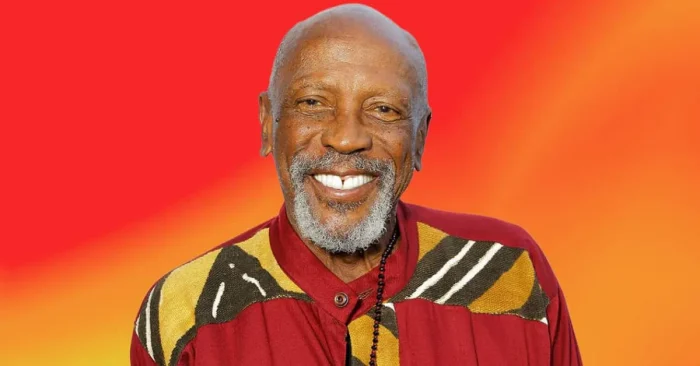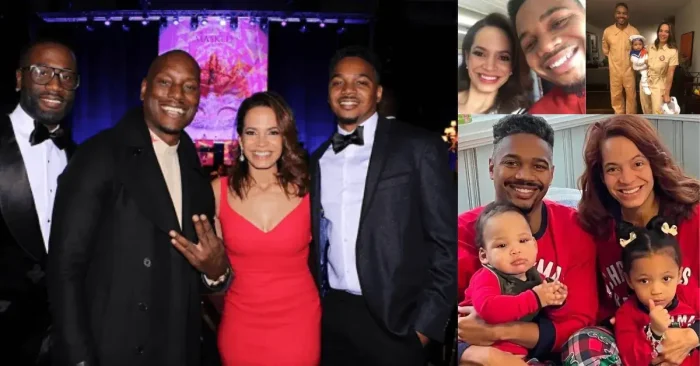Louis Gossett Jr – Biography
Who Is Louis Gossett Jr.?
Louis Gossett Jr. was a celebrated American actor known for his commanding presence and historic achievements in film and television. With a career spanning over six decades, Louis Gossett Jr. became the first African-American man to win an Academy Award for Best Supporting Actor. His powerful performances, advocacy for civil rights, and commitment to social justice earned him a lasting place in entertainment history.
Early Life and Education
Louis Gossett Jr. was born on May 27, 1936, in Brooklyn, New York. Raised in a close-knit family, he developed an early passion for storytelling and theater. He attended Abraham Lincoln High School, where a leg injury kept him from sports but led him to audition for a school play. His natural talent soon became evident. He earned a drama scholarship to New York University, becoming one of the few African-Americans in mainstream theater during the 1950s and 1960s.
Stage Success and Early Screen Roles
Louis Gossett Jr. began his career on Broadway, where he starred in notable productions such as “A Raisin in the Sun” alongside Sidney Poitier. He quickly became known for his rich voice, strong stage presence, and nuanced performances. His early television roles in series like “The Outer Limits” and “Bonanza” made him a familiar face to American audiences. At a time when opportunities for Black actors were limited, he persevered with determination and talent.
Breakthrough in Film
Gossett gained international fame with his role as Gunnery Sergeant Emil Foley in “An Officer and a Gentleman” (1982). His performance as the tough but compassionate drill instructor won him the Academy Award for Best Supporting Actor, making history in the process. The role earned him additional accolades, including a Golden Globe. The film’s success cemented Louis Gossett Jr.’s reputation as one of Hollywood’s most respected actors.
Continued Career and Advocacy
After his Oscar win, Louis Gossett Jr. continued to take on powerful roles in both film and television. He starred in “Iron Eagle,” “Enemy Mine,” and “The Josephine Baker Story.” On television, he won an Emmy for his portrayal of Fiddler in the groundbreaking miniseries “Roots” (1977), a performance that touched millions and brought awareness to the horrors of slavery. Beyond acting, Gossett was committed to anti-racism work, founding the Eracism Foundation to combat racial injustice and promote education.
Later Years and Final Roles
In his later years, Louis Gossett Jr. remained active in film and television. He appeared in productions like “Watchmen” (2019) and “The Cuban” (2020), bringing wisdom and grace to every role. Despite health challenges, including a battle with prostate cancer and respiratory illness, he continued working and mentoring younger actors. Gossett passed away on March 29, 2024, at the age of 87, leaving behind a powerful legacy of resilience and excellence.
Legacy of Louis Gossett Jr.
Louis Gossett Jr. broke barriers, changed perceptions, and opened doors for future generations of Black performers. His artistry, humility, and courage made him an icon in both entertainment and activism. Remembered for his landmark achievements and deeply human performances, Louis Gossett Jr. will always be honored as a trailblazer whose influence reaches far beyond the screen.
Frequently Asked Questions (FAQs)
What was Louis Gossett Jr. famous for?
He was best known for his Academy Award-winning role in “An Officer and a Gentleman” and his Emmy-winning performance in “Roots.”
Did Louis Gossett Jr. win an Oscar?
Yes, he won the Academy Award for Best Supporting Actor in 1983 for “An Officer and a Gentleman.”
What other awards did he receive?
He won a Primetime Emmy for “Roots,” two Golden Globe Awards, and several NAACP Image Awards during his career.
Was he involved in activism?
Yes, Louis Gossett Jr. was deeply involved in civil rights activism and founded the Eracism Foundation to fight racial injustice.
When did Louis Gossett Jr. pass away?
He died on March 29, 2024, at the age of 87, leaving behind a remarkable legacy in American film and television.






